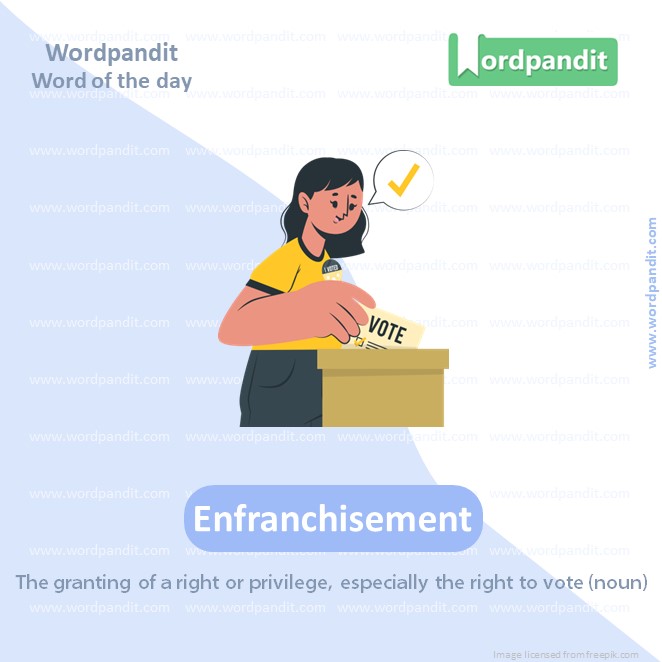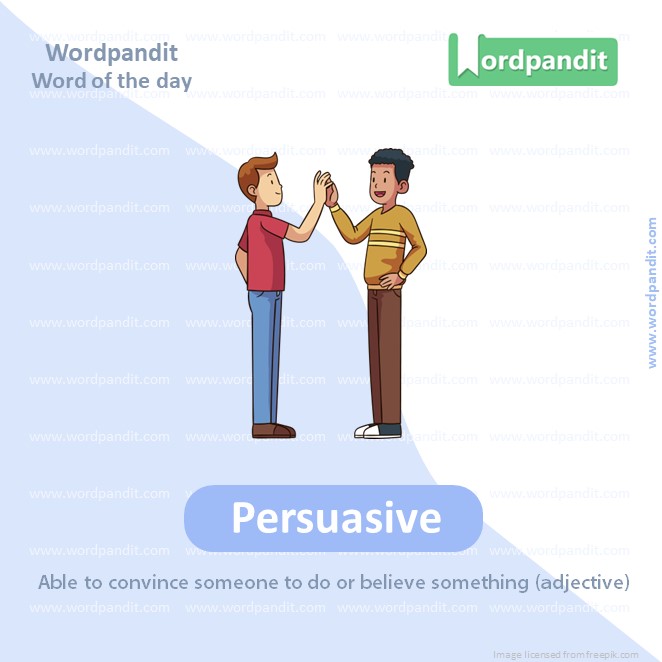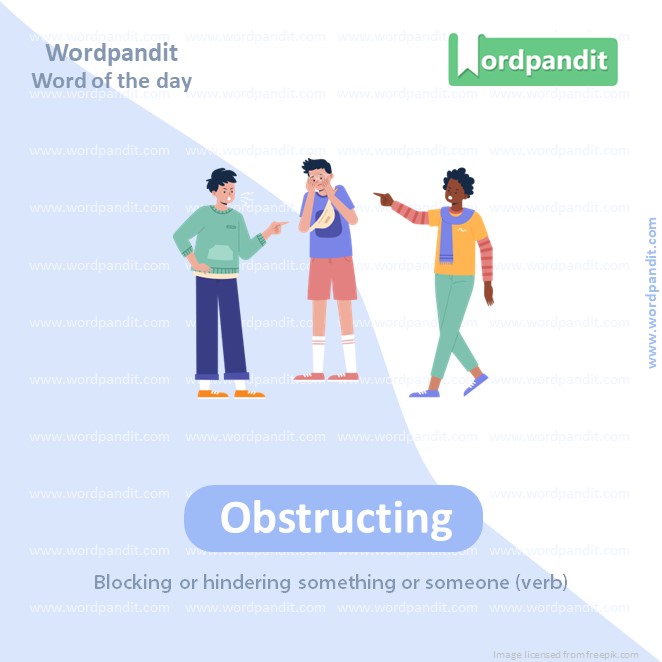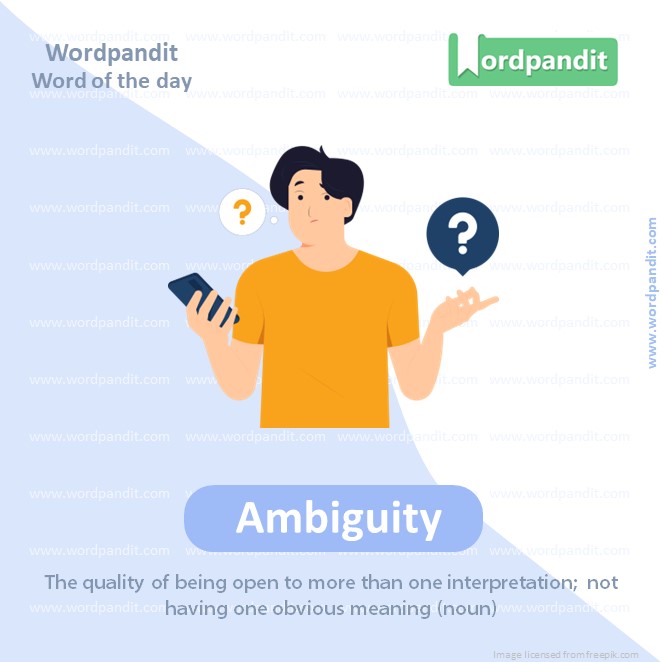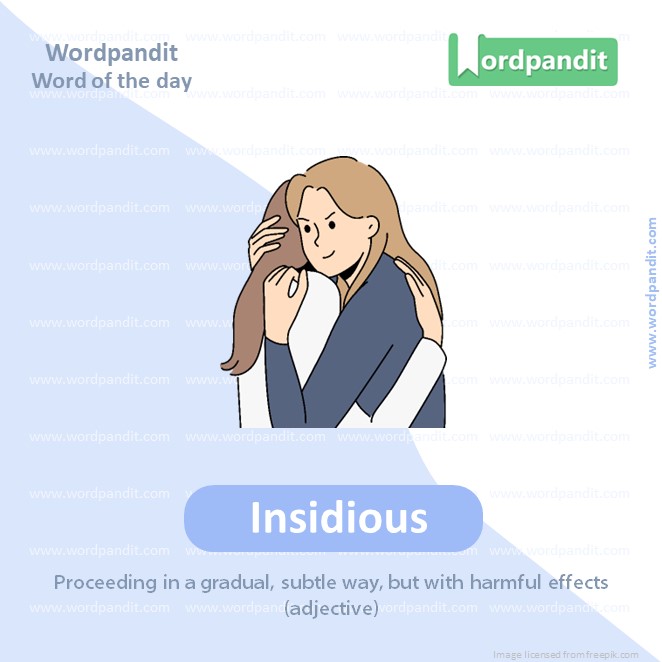Daily Vocabulary from International Newspapers and Publications
Expand Your Vocabulary with Wordpandit’s Global Vocabulary Hub
At Wordpandit, we are committed to helping you develop a truly global vocabulary by drawing from some of the most respected international publications. This section is designed to keep you ahead of the curve by introducing you to words that define global conversations and trends.
The Power of Global Sources
To help you think and communicate on a global scale, we curate vocabulary from renowned international sources, such as:
- The New York Times
- The Washington Post
- BBC
- The Guardian
- The Economist
- Scientific American
- Psychology Today
- And many more...
Stay Global, Stay Competitive
Our daily updates from international publications ensure you are consistently exposed to new words that reflect global news and developments, making sure your vocabulary is not only current but also globally relevant.
Enhance Your Global Perspective
Whether you’re preparing for international exams, aiming to excel in global business communication, or want to enhance your language skills for personal growth, Wordpandit offers the resources you need to thrive in a global context.
Effective Learning, Global Reach
Our learning methodology combines global examples, memory aids, and interactive activities, allowing you to internalize new words effectively and apply them in real-world scenarios.
Begin Your Global Vocabulary Journey Now!
Why Choose Wordpandit?
Practical Learning: Focus on words you'll actually encounter in real-world reading, enhancing your comprehension and communication skills.
Diverse Content: From current affairs to scientific breakthroughs, our varied sources expose you to vocabulary across multiple domains.
Effortless Integration: Make Wordpandit a part of your daily routine. Just a few minutes each day can significantly boost your lexicon over time.
Your Path to Vocabulary Mastery
- Visit our Daily Vocabulary section regularly
- Explore new words and their usage in context
- Practice incorporating these words into your own writing and speech
- Track your progress as your vocabulary expands
Start Your Journey Today
Embark on your vocabulary enhancement journey with Wordpandit. By consistently engaging with our daily posts, you'll build a robust vocabulary that serves you well in academic, professional, and personal contexts.
Remember, a word a day keeps linguistic limitations at bay. Make Wordpandit your daily companion in the quest for vocabulary excellence!
WORD-1: Enfranchisement
Context:
"The overall effect is of an emphatic enfranchisement of the rights of people in Gaza." - Guardian
Explanatory Paragraph:
The word "enfranchisement" refers to the act of giving someone rights or privileges, especially the right to vote or participate in a society's democratic processes. In broader contexts, it can also mean granting full freedom or liberation to individuals or groups. In the sentence from the Guardian, it emphasizes restoring or affirming the rights and freedoms of the people in Gaza, suggesting empowerment and recognition of their voice.
Meaning: The granting of rights or privileges, especially the right to vote (Noun)
Pronunciation: en-FRAN-chize-ment
Difficulty Level: ⭐⭐⭐ Intermediate
Etymology: From Old French *enfranchir* meaning "to set free", which itself comes from *franc* meaning "free".
Prashant Sir's Notes:
This word is powerful in political, historical, and social contexts. Think of it as the opposite of suppression — it is about giving rights, not taking them away. Always link it to "freedom", "vote", or "liberation" when trying to recall its meaning.
Synonyms & Antonyms:
Synonyms: empowerment, liberation, emancipation, authorization, granting rights
Antonyms: disenfranchisement, oppression, subjugation, restriction
Usage Examples:
- The enfranchisement of women marked a major milestone in the country's democratic evolution.
- Economic development is meaningless without the political enfranchisement of all citizens.
- The civil rights movement fought tirelessly for the enfranchisement of African Americans.
- Modern activism often centers around the enfranchisement of marginalized communities.
Cultural Reference:
"The history of the United States is the history of the extension of enfranchisement to those previously excluded." - Paraphrased from Howard Zinn
Think About It:
Can a society truly be called democratic if segments of its population remain unenfranchised?
Quick Activity:
Write a short paragraph (3-4 lines) using the word “enfranchisement” in the context of digital rights or internet access.
Memory Tip:
Think of "enfranchisement" as giving someone a **"franchise"** — a formal permission or right — like giving them the power to vote or choose. “En-” means to give, and “franchise” relates to freedom.
Real-World Application:
In modern times, enfranchisement is used in discussions around voting rights, equal participation in society, and the inclusion of underrepresented voices in policymaking and governance.
WORD-2: Persuasive
Context:
"The ICJ case shows how western logic is wearing thin and its persuasive power waning in a multipolar world." - Guardian
Explanatory Paragraph:
The word "persuasive" describes something or someone that has the ability to convince others — through reasoning, logic, emotion, or appeal. In the Guardian quote, the phrase "persuasive power waning" implies that Western arguments are no longer as convincing or influential as they once were in a world where multiple global powers now shape discourse.
Meaning: Able to cause someone to do or believe something through reasoning or appeal (Adjective)
Pronunciation: per-SWAY-siv
Difficulty Level: ⭐⭐ Basic to Intermediate
Etymology: From Latin *persuasivus*, from *persuadere* meaning “to convince or urge”.
Prashant Sir's Notes:
This is a word that often pops up in essays and interviews — especially when talking about communication skills, leadership, or writing. If someone says you're persuasive, that’s a compliment to your ability to influence others effectively.
Synonyms & Antonyms:
Synonyms: convincing, compelling, influential, forceful, eloquent
Antonyms: unconvincing, weak, ineffective, unpersuasive
Usage Examples:
- Her persuasive speech moved the entire audience to take action.
- The lawyer’s persuasive argument helped sway the jury’s decision.
- Social media influencers rely on persuasive communication to promote brands.
- He wasn’t loud, but his quiet confidence made him incredibly persuasive.
Cultural Reference:
"The most persuasive kind of speech is not about shouting louder, but speaking the truth calmly." — inspired by Barack Obama’s oratorical style.
Think About It:
In an age of misinformation, what role does ethical persuasion play in shaping public opinion?
Quick Activity:
Write two short sentences — one using the word "persuasive" positively (e.g., in a job interview) and one negatively (e.g., in a manipulative situation).
Memory Tip:
Think of "persuasive" as "per-sway-sive" — it helps you *sway* people’s thoughts or actions in your direction.
Real-World Application:
Persuasive skills are vital in careers like marketing, law, politics, and teaching — where influencing minds and decisions is part of the job.
WORD-3: Obstructing
Context:
"By creating such a focal point for that shift, the case brought by South Africa has illustrated that perhaps it is those who are obstructing attempts to end the severe distress in Gaza who hold the fringe position." - Guardian
Explanatory Paragraph:
"Obstructing" refers to the act of blocking, delaying, or getting in the way of something. It often has a negative tone, especially when someone is seen as hindering progress or preventing something beneficial from happening. In the Guardian sentence, it refers to those who are preventing or resisting efforts to relieve suffering in Gaza, painting them as the ones taking an unreasonable or marginal stance.
Meaning: Deliberately hindering or preventing progress or movement (Verb - present participle)
Pronunciation: ub-STRUK-ting
Difficulty Level: ⭐⭐ Basic to Intermediate
Etymology: From Latin *obstruere*, meaning "to block up, stop up, build against"; formed from *ob-* (against) + *struere* (to build).
Prashant Sir's Notes:
This word is especially useful in political, legal, and social contexts. It shows resistance, often with a sense of being unfair or counterproductive. Always associate it with "blocking progress" or "standing in the way".
Synonyms & Antonyms:
Synonyms: blocking, hindering, impeding, interfering, delaying
Antonyms: facilitating, assisting, enabling, supporting
Usage Examples:
- The protesters were accused of obstructing traffic during the march.
- He was arrested for obstructing a police investigation.
- Obstructing dialogue in peace talks often leads to prolonged conflict.
- Outdated policies are obstructing the development of renewable energy initiatives.
Cultural Reference:
"Obstruction of justice" is a legal term often used in political scandals and high-profile court cases, notably during the Watergate scandal in the U.S.
Think About It:
Is obstruction always harmful, or can it sometimes be a form of protest or resistance against injustice?
Quick Activity:
Identify one situation (in history or current events) where someone was accused of obstructing progress. Summarize it in 2-3 lines using the word "obstructing."
Memory Tip:
Think of “obstructing” like putting a **structure** (stru) in front of a door — it blocks the way. "Ob-struct" = building *against* something.
Real-World Application:
The word "obstructing" is commonly used in news reports, law enforcement, and policy discussions to describe efforts that delay or derail progress, be it legal proceedings, humanitarian aid, or social reforms.
WORD-4: Ambiguity
Context:
"...the absence of moral ambiguity. Few moral issues are entirely uncontroversial, and where there is disagreement, there cannot be the kind of groundswell of public opinion that has finally brought the Post Office scandal to the top of the political agenda." - Guardian
Explanatory Paragraph:
“Ambiguity” refers to uncertainty or vagueness, particularly when something can be interpreted in more than one way. In this Guardian context, “moral ambiguity” suggests situations where what’s right and wrong isn’t clear-cut. The quote contrasts this idea by noting the *absence* of such ambiguity in the Post Office scandal — implying that the wrongdoing is so obvious that there's little room for disagreement.
Meaning: The quality of being open to more than one interpretation; uncertainty (Noun)
Pronunciation: am-big-YOO-uh-tee
Difficulty Level: ⭐⭐⭐ Intermediate
Etymology: From Latin *ambiguitas*, from *ambiguus* meaning “doubtful, uncertain”; *ambi-* (both) + *agere* (to drive or lead).
Prashant Sir's Notes:
This is a must-know word for essays and debates. Whether in ethics, law, or literature, ambiguity refers to the grey areas. Moral ambiguity, for example, is when right and wrong aren’t clearly defined — think of anti-heroes in movies or complex social issues.
Synonyms & Antonyms:
Synonyms: vagueness, uncertainty, obscurity, equivocation
Antonyms: clarity, certainty, explicitness, transparency
Usage Examples:
- The law’s ambiguity left it open to various interpretations.
- Her ambiguous response created more confusion than clarity.
- In literature, ambiguity can add depth and complexity to a story.
- The diplomat's statement was full of ambiguity, likely on purpose.
Cultural Reference:
In Christopher Nolan’s film *Inception*, the ending is deliberately filled with ambiguity — was it a dream or reality? That ambiguity sparked debates worldwide.
Think About It:
Can ambiguity in moral decisions be a strength — allowing empathy and nuance — or is it a weakness that leads to indecision and injustice?
Quick Activity:
Write a sentence about a controversial news story or ethical issue using the word "ambiguity" to highlight the uncertainty in public opinion.
Memory Tip:
“Ambiguity” contains “ambi” — meaning “both”. Think: *two meanings*, *two directions* — it’s all about things not being one clear thing.
Real-World Application:
Ambiguity plays a key role in legal contracts, political speeches, and literature — and understanding it helps in analyzing texts, debates, and social issues more critically.
WORD-5: Insidious
Context:
"The Conservatives have masterfully used immigration, for instance, to tell an insidious and divisive story about Britain and who belongs here." - Guardian
Explanatory Paragraph:
"Insidious" describes something harmful that spreads gradually and subtly, often without being noticed at first. It’s not openly aggressive, but it’s dangerous precisely because it hides behind the surface. In the Guardian sentence, the term is used to describe a political narrative — one that appears normal or persuasive on the outside, but slowly sows division and fear within society, making it especially dangerous.
Meaning: Proceeding in a gradual, subtle way but with harmful effects (Adjective)
Pronunciation: in-SID-ee-us
Difficulty Level: ⭐⭐⭐⭐ Advanced
Etymology: From Latin *insidiosus*, meaning “deceitful, cunning,” from *insidiae* (ambush, plot), rooted in *in-* (in) + *sedere* (to sit — like lying in wait).
Prashant Sir's Notes:
Always connect this word with "hidden danger." Think of poison in a sweet drink — it doesn’t hurt you right away, but it’s deadly over time. It’s perfect for describing policies, ideologies, diseases, or even habits that feel harmless but cause deep damage over time.
Synonyms & Antonyms:
Synonyms: subtle, stealthy, sneaky, deceitful, treacherous
Antonyms: open, honest, direct, transparent, obvious
Usage Examples:
- The insidious nature of propaganda lies in its ability to slowly change public opinion.
- Stress can have an insidious impact on both physical and mental health if left unaddressed.
- Racism in institutions can often be insidious, hidden behind policies that seem neutral.
- He didn’t realize the insidious effect his constant self-doubt was having on his confidence.
Cultural Reference:
The film *Insidious* (2010) uses the word’s literal sense — something dark and dangerous creeping in unnoticed — to frame a horror story about evil forces entering the home in subtle ways.
Think About It:
What are some modern ideas or narratives that seem harmless on the surface but might have insidious long-term effects?
Quick Activity:
Rewrite the sentence: “The new policy sounds fair, but it hides some insidious consequences.” — using a different example of an insidious idea in politics or society.
Memory Tip:
Think: **“inside + hideous”** — Insidious things are *hidden inside*, and they're often *hideous* in impact.
Real-World Application:
"Insidious" is widely used in political analysis, social critique, psychology, and even medicine — to describe dangers that creep in silently, influencing behavior or health without immediate detection.



